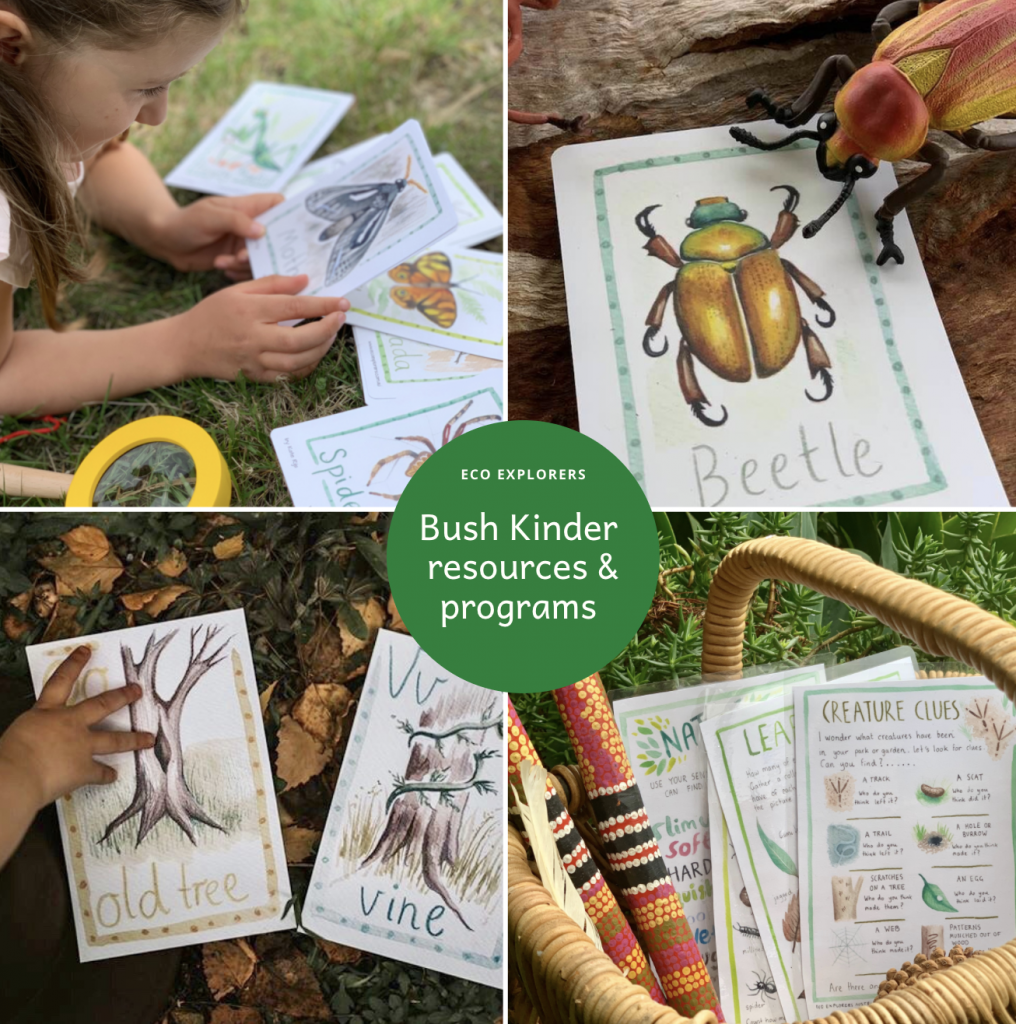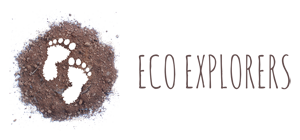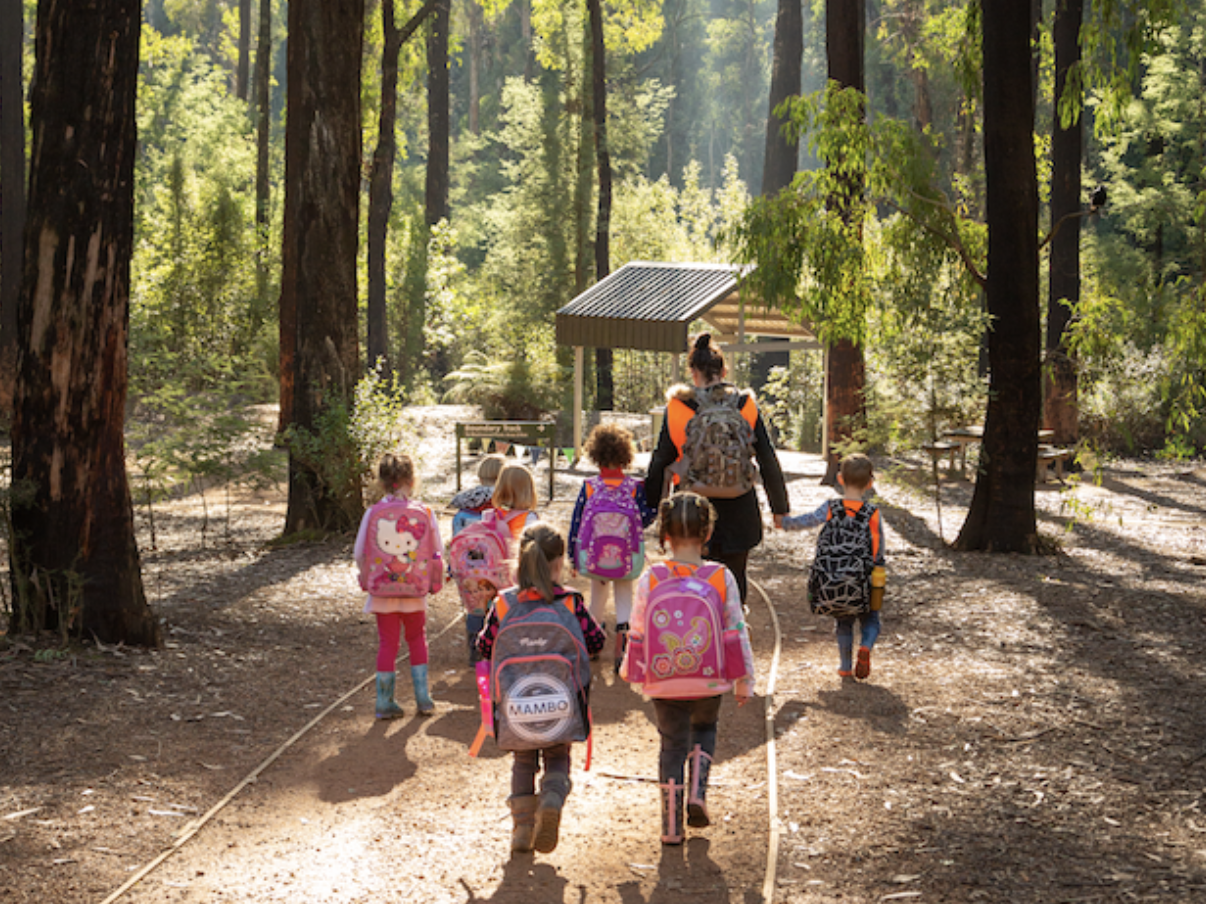My journey, the tears, triumphs, and lessons learnt along the way
I’ve only been teaching for six years, but it feels like a lifetime due to the exceptional transformation I have undergone as a teacher over these six short years. My pedagogical transformation is multi-faceted and came about as a direct response to the needs of the children, families, and community in which I live, work and play.
Let’s zoom back to 2014. I was at RMIT studying a Graduate Diploma of Education (early childhood). People were talking about ‘bush kinder’… ‘Bush what?’ I thought? Its hard to think that 7 years ago I really had not heard of nature pedagogy or the benefits of bush. But the idea struck a chord in me and after visiting a bush kinder in action at Yarra Warra Pre School, I was hooked.
I started my first job at Kinglake Ranges Children’s Centre. Reality hit.
I came into a community, which was recovering from the deadliest bushfires in Australia’s history – Black Saturday. The children I taught were those born in the 18 months following the fires – in utero when there was still a significant amount of stress, anxiety and grief within our community. At the time I did not understand the neuroscience implications of this tumultuous event.
Like any community, there were also other factors at play which continue to impact the children at our centre – and all over Australia. It is important as teachers that we understand these driving factors; poverty, domestic violence, mental health, substance abuse, and seek to use educational theories like Bronfenbrenner to shape our understanding of each individual child and their developmental needs.
2016 arrived and little did I know that this be one of the most challenging years of my life, but also the pivotal point in my career. This year will forever be etched in my personal timeline as the year that drove my transformation. In my small group of 14, 4-year-old kinder children, I saw some of the most challenging behaviour I have ever witnessed. Many children within this group experienced trauma, displayed anxiety, had developmental diagnoses or other complications.
Looking at the collective language of this group, the overwhelming ‘voice’ told me “things need to change – this is not working for us”.
During 2016, I undertook a significant level of professional development in neuroscience, understanding trauma , behaviour guidance, the Pheonix Cups Framework, nature pedagogy and a 3 day bush kinder training via Hunter TAFE in Orimbah, NSW.
We decided things at our centre had to change. Enter bush kinder.
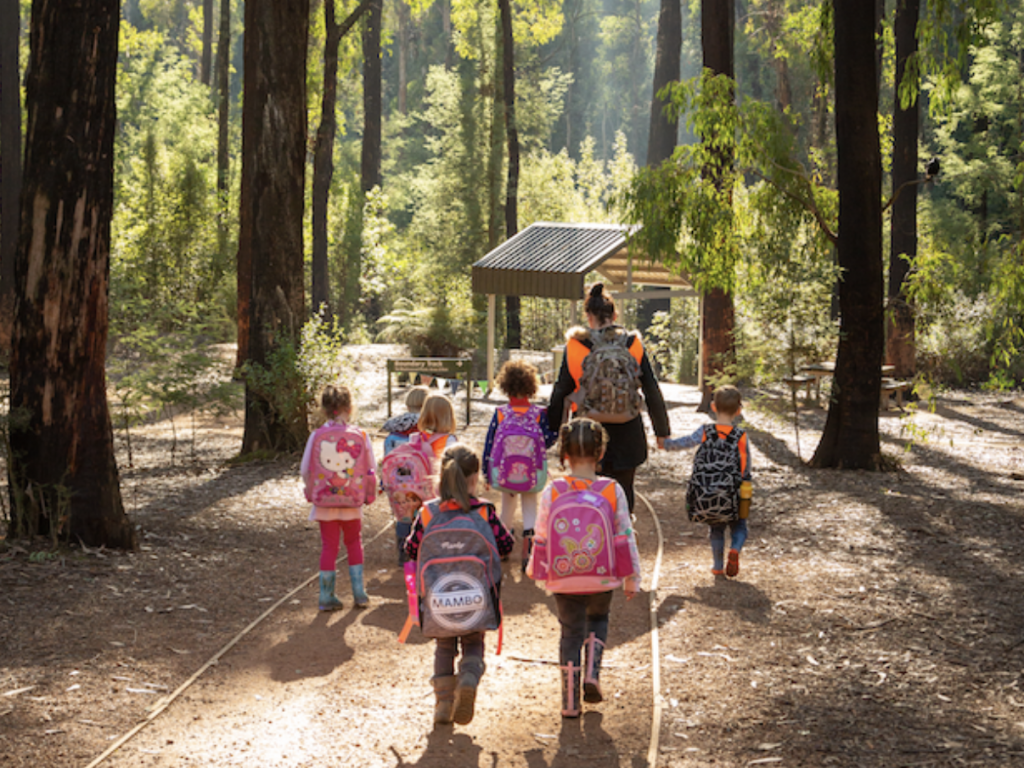
The start of our bush kinder program
In 2017 we launched our pilot program for bush kinder with the expressed purpose of improving mental health and resilience – directly addressing the statistics of 1 in 7 Australian children who experience mental health issues each year, and those high levels of stress and anxiety we witnessed in our own community. Our bush program would comprise 3 hours of a total 15 hours of funded kindergarten each week during school terms. We received 26 enrolments which created two groups of 13 children, running with a 1:7 ratio (1 adult to seven children) + additional funded inclusion support.
That first year was a breath of fresh air! It was wonderful to witness a turn around in children’s learning and self-regulation. We also experienced a renewed enjoyment as a teaching team.
The many benefits of immersion in nature are well documented. Knowing this research is one thing, watching it play out before your eyes is a sight to behold. The highlights that will stick with me from our first year include:
- The realisation that we had to teach children how to play without toys!
- Boredom births creativity – we had to get past this point before the magic happens.
- Friendships blur at bush kinder – children tend to play with a larger range of children than we witnessed at home (Centre-based) kinder.
- Intergender play was not something we expected though the level of intergender play at bush kinder still astounds me. Interestingly, the leadership in this play seems to be shared more equally as we see less of the ‘socio norms’ played out. Perhaps this is due to the lack of closed-ended toys and the abundance of open-ended natural resources…after all, a stick could be many things!
- Resilience! Children seemed to be more resilient at bush kinder. I remember watching a young man playing the dungeon keeper in a wonderful dramatic play that lasted for weeks. At one stage he fell over, head over heels in a semi somersault. He picked himself up, shook his head, picked up his stick and continued. Viola, who had also tripped over moments before him stopped mid tears to watch the spectacle. Then she said “hmmm, Murphy fell over and didn’t cry…he got up and kept playing. If he can do it, I CAN DO IT” and she got up and continued on. Later that same year, Viola came to the help of another friend who had taken a tumble. I watched in amazement as she crouched down, put her hand out and said “You’re OK, you just fell over and got a big fright, come on I’ll help you up”.
- The level of risk taking and natural risk assessing within our group improved. We observed children began to make better choices about risk – both pushing their physical boundaries while also being better able to judge between a safe and an unsafe risk. This skill holds lifelong benefits as research shows children who are encouraged to take risks at a young age develop the ability to make better judgements on risk over their lifetime. As a result, these children tend to make better career, relationship, and financial decisions throughout their life.
- The overall level of literacy within the bush kinder group has grown substantially. We noticed children observe the tiniest detail within the environment and this transferred into literacy back at home kinder; drawings became more detailed, play became more complex and the level of vocabulary the children used grew significantly.
- Our journey into learning about Australia’s First People’s perspective and our move towards creating a culturally safer space for families within our community has been made possible through bush kinder. We have thoroughly enjoyed embedding Taungurung and Wurundjeri perspectives into our program and in turn have seen a ripple effect on our community as children take learning home to share with their families. We’ve use the Taungurung Language App and the 7-Seasons of the Kulin people as key starting points in this journey.
- Notably I have noticed the positive impacts regular outings to the National Parklands have had on my own mental health, resilience, and sense of wellbeing. This has been particularly noticeable during 2020 as lock down restrictions have impacted our ability to use the parklands at different times.
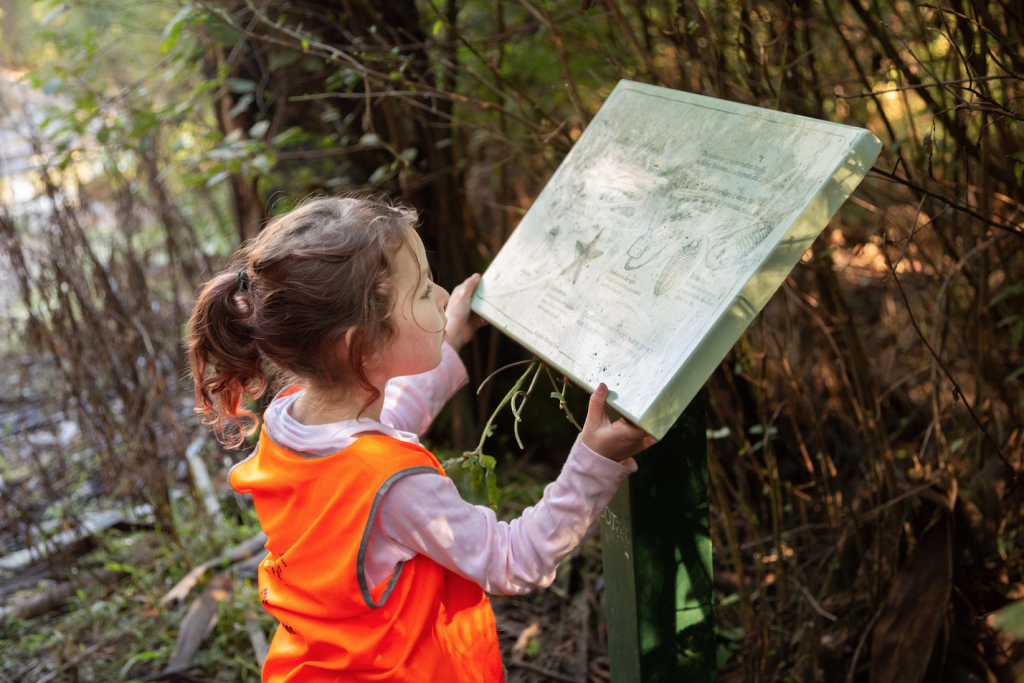
The most rewarding aspect of bush kinder has been seeing the ripple effect on all children at our early childhood centre as a whole. Nature pedagogy combines with guidance approaches, implementation of the Phoenix Cups Framework (as an alternative way to view children and their behaviour), a pro risk culture, outdoor play in all weather, use of loose parts and child-centric emergent style programming which continues to support individual children in their holistic development and mental health. We have moved from a centre that used to discuss ‘behaviour’ to one where the collective voice seeks to understand children, their unique contexts, their basic human life needs (in terms of need for freedom, mastery, connection, fun/learning and safety) and how we can better support them. We are observing children exploring risk and risk assessing from a very young age and we have not again witnessed those challenging behaviours I mentioned back in 2016.
In 2019, I attended the “International Play Iceland” study tour in Iceland. This conference combined neuroscience, nature pedagogy and play in a powerful message: we must fight to defend children’s rights to play and we must employ neuroscience informed practise. In other words:
Nature + Nurture + Play = Resilience.
If you haven’t seen the ‘PLAYed’ documentary from this trip, click below to watch it.
For a range of videos around the benefits of play, self-regulation, foundational skills for learning and other early childhood development related topics, follow me on Facebook: Linda From Kinder. https://www.facebook.com/lindafromkinder
For more information about the Kinglake Ranges Children’s Centre visit https://www.kinglakerangescc.org.au/
This article has been written by Linda Price – Early Childhood Teacher, Kinglake Ranges Children’s Centre
For resources and downloadables to use for your bush kinder, check out our downloadable range of nature learning resources and online store.
